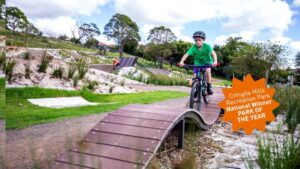
Signs your baby is ready for solids. Introducing solids the safe and stress-free way
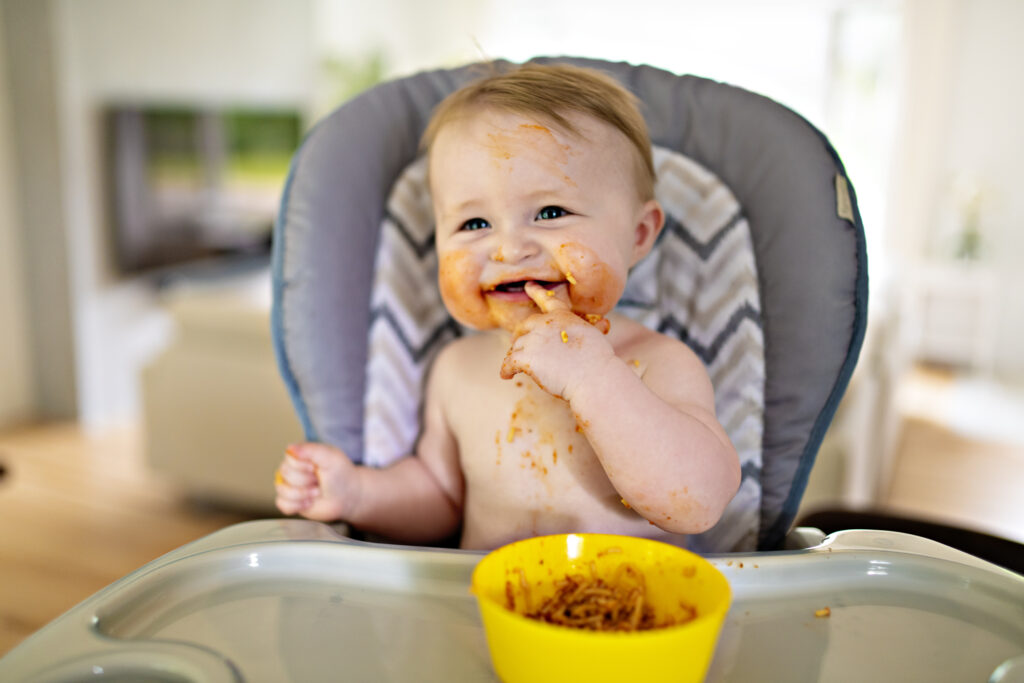
The move from milk to solids is a significant milestone for babies and parents alike – but there’s no need to be apprehensive. Get the professionals’ tips and tricks (with thanks to the expert team at the Illawarra Early Parenting Centre) for navigating this important step with your little one.
Choosing the right time
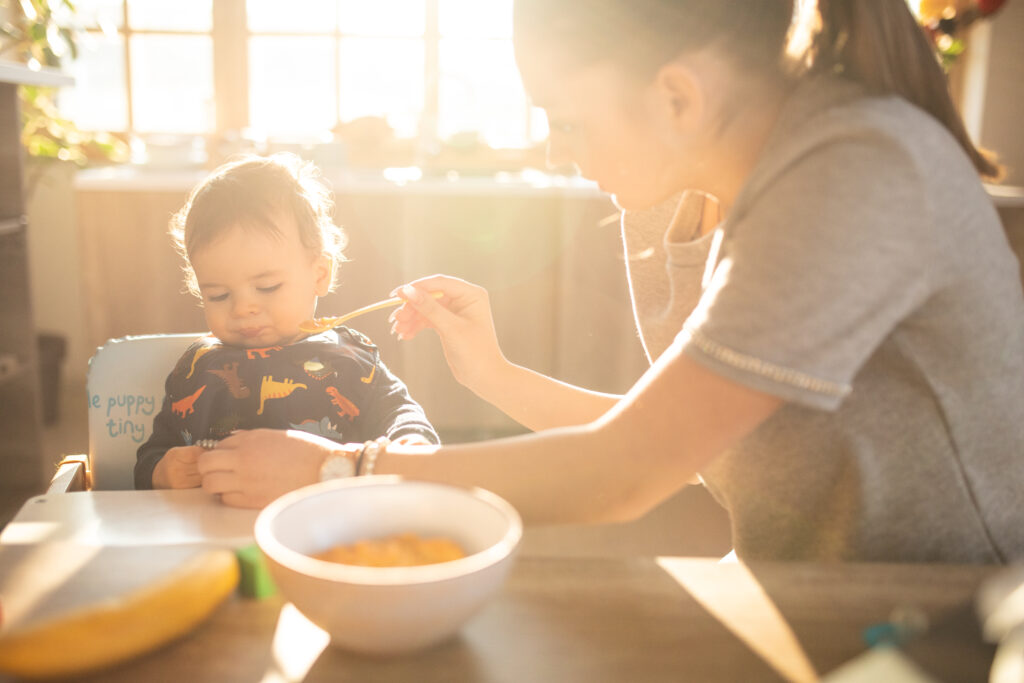
Up until 6 months, your baby only needs milk (either breastmilk, formula or a mix of both). Milk provides all the nutrients your young baby needs and is suited perfectly to their digestive system. Beyond 6 months, your baby will begin to need other foods to give them necessary nutrients, including iron.
Depending on your baby’s weight and behavioural readiness, your doctor or Maternal and Child Health Nurse will help you to choose the right time to introduce solids, but the World Health Organisation recommends waiting until a baby is at least 4 months old.
Signs your baby might be ready to start solids include:
- Increased appetite and interest in solid food, for example showing excitement when you or other adults are eating
- The ability to hold up their head and neck independently
- Loss of extrusion reflex (tongue thrust)
- Opening their mouth when offered a spoon
- Making mealtimes happy times
From the very beginning of your solids journey, you are forming lifelong habits and attitudes towards food and mealtimes for your baby.
Try not to pressure your baby to try every food you offer them. Instead, give them the chance to touch, mash and smear foods as they want to, and to eat as much or as little of their food as they wish – especially when their diet is still made up mostly of milk, as the milk will still be meeting their nutritional needs.
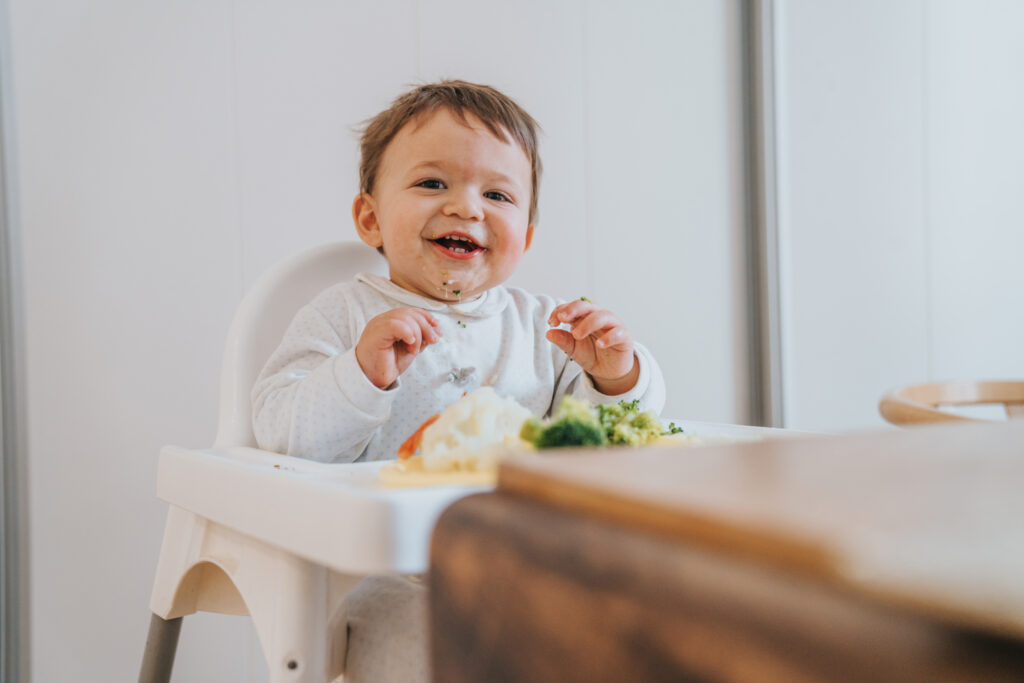
Introducing solids the safe and stress-free way
4-6 months: start off smooth
Start with iron-enriched cereal and/or cooked meat, poultry, fish, plain tofu or legumes in paste form. Small babies do not have teeth and cannot break down food inside their mouths.
7-8 months: finger foods
At this age, babies should be learning to chew. Chewing aids a baby’s jaw and speech development – there is a critical window for chewing between 7-9 months. Offer lumpy finger foods.
12 months and beyond: eating all sorts
From 12 months milk alone no longer offers sufficient nutrients for healthy growth. Your baby should be eating a wide variety of fresh, nutritious foods by the time they reach this age.
Foods to avoid
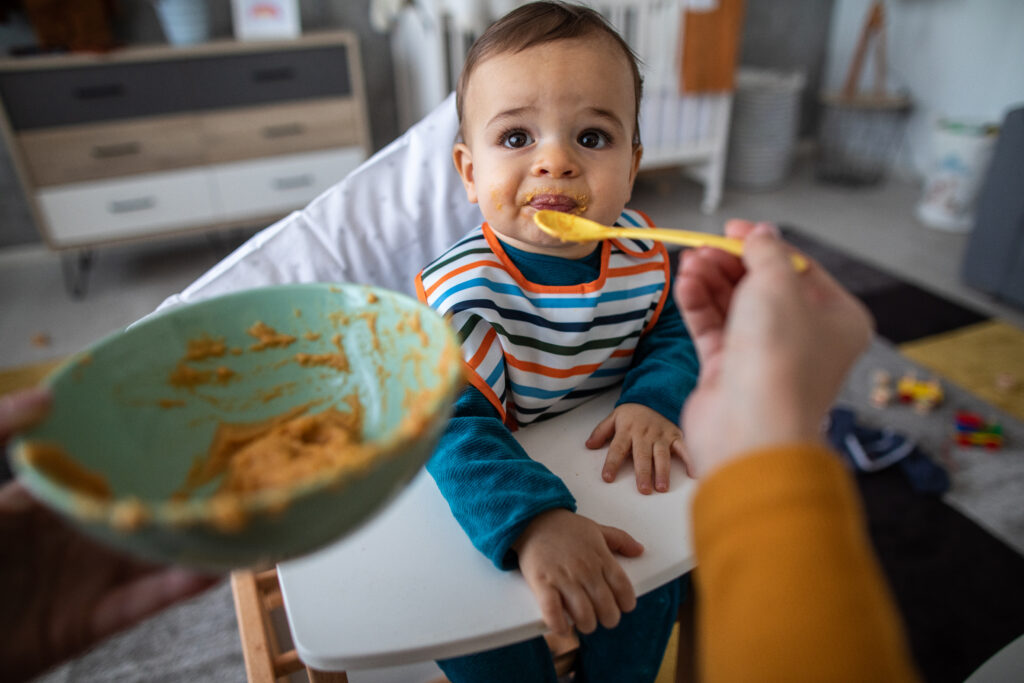
Introducing solids the safe and stress-free way
Babies should eat safe, healthy foods that give them nutrients and do not pose an allergy or choking risk. Foods to avoid include:
- Raw eggs, meat, honey or cow’s milk as a main drink until 12 months of age
- Foods that can cause choking including whole nuts, grapes, berries, hard raw fruits and veggies or popcorn
- Fruit juice or fruit drinks
- Tea or coffee, including herbal teas
- Highly processed, sugary or salty foods
- Foods known to cause allergic reactions in family members
Get in touch
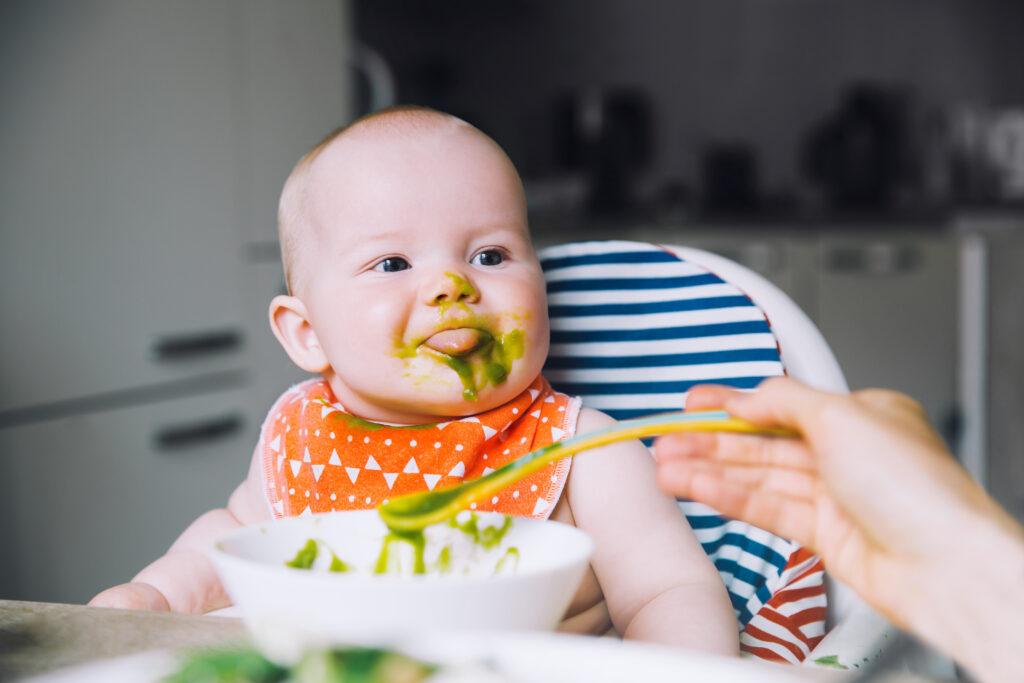
The Illawarra Early Parenting Centre, located at Figtree Private Hospital, is the Illawarra’s only residential postnatal support service for babies up to 2 years of age.
Their support program can assist with a range of common parenting concerns including:
- Sleep and settling
- Feeding difficulties
- Developing daily routines
- Maternal exhaustion
- Bonding with your baby
- Adjusting to parenting
For more information on how the Illawarra Early Parenting Centre can help with support for infant feeding concerns, please contact them online or call (02) 4255 5000. Alternatively, click here to learn more about the Illawarra Early Parenting Centre Program. Thankyou to the Illawarra Early Parenting Centre for sharing their expertise and for sponsoring this article.
Click and sign up for our Parents Newsletter here. Get all the local inspo!
You might also like:



